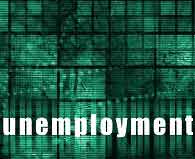The U.S. economy is showing modest but welcome signs of life in employment and retail sales, adding to expectations of recovery from the longest and deepest recession of the post-World War II era.

The number of newly-laid off Americans filing for jobless benefits fell last week to the lowest level since the beginning of the year. According to the U.S. Labor Department, new unemployment insurance claims totaled 521,000, down from 554,000 the previous week.
Joel Naroff heads Naroff Economic Advisers consulting firm.
"This was a somewhat better-than-expected number," said Naroff. "What this is telling us is that the really great problems in the unemployment situation are behind us. We are still having too many people file for unemployment claims, but we are beginning to see some firming in the labor market itself."
Naroff says the number of new jobless benefits claimants will have to fall even further, to about 450,000 a week, to prevent overall unemployment from continuing to rise. The unemployment rate stands at 9.8 percent, and is widely expected to top 10 percent in coming months - even if the U.S. economy records positive growth in the final quarter of the year.
Among the hardest hit segments of the U.S. economy is the retail sector. But, collectively, America's stores recorded the first sales gains in more than a year in September. The 0.1 percent rise may seem miniscule, but compares favorably to a 1 percent drop a year ago.
Retail analyst Candace Corlett says consumers remain frugal.
"There is a real movement afoot that says, 'I don't want to go back to the debt I used to carry.' Consumers are being selective," said Corlett. "It is not that they do not have some money to spend. But they just are not going to spend it everywhere."
The consensus view among economists is that consumer spending is urgently needed in the short term to spark economic expansion, but that ultimately Americans must save more and consume less than they did before last year's financial meltdown.
Earlier this week, Australia became the first industrialized nation to raise interest rates since the financial crisis and global economic slowdown struck last year. Thursday, the European Central Bank left a key interest rate unchanged at a record-low one percent, but said the worst of the recession is over.
Related stories:
Mixed US economic data reported on jobs, home sales
Upbeat US economic indicators amid record Federal deficit projections
Recession easing, but many Americans still afraid to spend
Obama: Economic stimulus producing results
(Source: VOA 英语点津编辑)